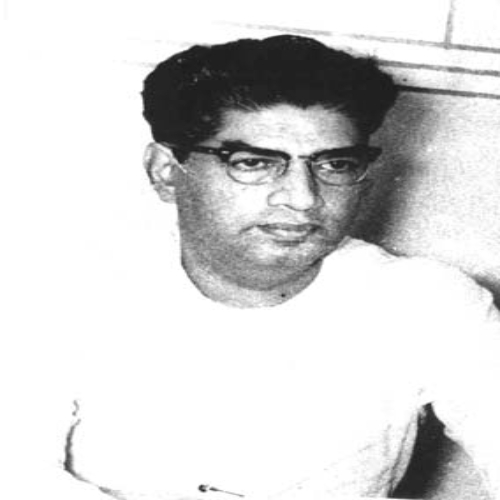Early Life
Sankar was born in the village of Kuzhikkalidavaka in Kerala’s Kollam district on 30 April 1909 as the youngest of five brothers. He completed his schooling in 1924, initially at the Puthoor Primary School and later at the English School, Kottarakkara. After school, Sankar joined Maharaja’s College in Thiruvananthapuram. In 1933, he took up law at the University Law College in Thiruvananthapuram. Though trained as a lawyer, Sankar began his professional life as a teacher when he joined Sivagiri High School in Varkala as the principal.
Role in India’s Independence Movement
Beginning in the 1930s, the socio-political climate in Travancore was alive with progressive movements questioning caste hierarchies and pressing for a responsible government in the Princely State of Travancore. Agitations like the Nivarthana Movement of 1932 calling for proportionate representation for Ezhavas, Muslims and Christians in the State legislature would set the stage for Sankar’s rise in Kerala’s politics. A gifted orator, he quickly gained attention for his speeches focused on the prevalent social structure in Kerala and the discrimination experienced by marginalized castes.
Soon, Sankar became involved with the Travancore State Congress which was formed in 1938. But his relationship with Congress had its ups and downs. His association with the Shree Narayana Dharma Paripalana Yogam (SNDP) also began during this period. Formed under the guidance of Shree Narayan Guru in 1908, SNDP was modeled as a social service organization geared to represent the Ezhava Community. Sankar would become General Secretary of SNDP in 1944 and continue to hold the post for another 10 years. He also served as the President of the Yogam.
Contribution to Constitution Making
Sankar was elected to the Constituent Assembly from the Princely State of Cochin-Travancore on a Congress Party ticket. He did not actively speak in the Assembly.
Later Contributions
Sankar was initially a member of the Travancore Legislative Assembly in 1948 and after the State’s merger with the Kingdom of Cochin he took his seat in the Travancore-Cochin Assembly until 1956.
By the late 1940s, Sankar’s relationship with the Congress had become tenuous. The Party was caught in an internal power struggle between religious pressure groups and was now primarily controlled by Christian denominations. The rift within the Congress reached its climax in 1949 when Sankar and the Nair Service Society’s Mannathu Padmanabhan were dropped from the Party. The two then formed the Hindu Maha Mandalam, forcing a brief respite in the otherwise fragile relationship between the Nairs and Ezhavas. Though this was spouted as a united Hindu Party, the experiment was short-lived.
The newly formed Travancore-Cochin State went through a period of instability, which saw numerous ministries come and go. In 1956, the new state of Kerala was born and a Communist government came to power the following year. The educational and agrarian policies of the government invited a united resistance from opposition political parties and religious groups, particularly the Christian and Nair interest groups. Sankar as the President of the Kerala Pradesh Congress Committee, led the party’s powerful support to this movement called the ‘Liberation Struggle’ that would eventually dismiss the elected Communist government in 1959.
In the next elections in 1960 the Congress under Sankar was able to form a coalition government with the Praja Socialist Party’s Pattom Thanu Pillai as the Chief Minister. Sankar as the face of Congress served as the deputy Chief minister with additional charge of finance in this ministry. In 1962, he became the first Congress Chief Minister of Kerala. But his term lasted only until 1964, as the Party’s internal turmoil forced him to resign. His loss in the following elections of 1965 pushed Sankar to take a step back from politics and shift focus to his work with SNDP.
Sankar was a committed educationist and is still widely remembered for the umpteen educational institutions he helped establish. He founded the Shree Naryana Trusts (SN Trusts) in 1952 to start and manage SNDP’s educational institutions aimed at democratizing access to education in a deeply discriminatory Kerala society. The trust under Sankar opened numerous schools and colleges, including S.N. College Kollam, S.N College Chempazhanthy, Sree Narayana Guru College Of Advanced Studies Pambanar etc.
Sankar passed away on 6 November 1972 aged 63.
- Sankar was concerned that a chunk of the Travancore State’s income after independence would go to the Centre and hence, argued for some level of fiscal autonomy for the State to be able to maintain its high level of development and administrative efficiency.
- He requested the Assembly to stop the imposition of Hindi as the national language until the people from the South and East of India were able to sufficiently acquainted with it. In the meantime, he wanted English to continue as the primary means of communication.
- Sankar by Sudha P. (National Book Stall, 1983)
- Chief Ministers, Ministers and Leaders Of Opposition of Kerala: Biographical Sketches and Other Data (Secretariat of the Kerala Legislature, 2018)
- Groupisavum Cheriporum; Adhikara Rashtriyathil Manamnonth R Sankar; Ormachithram (Manorama News, 2021)
- The Liberation Struggle and the Dismissal of the First Communist Ministry in Kerala by Dr. Ajayan Thakappan Nair (South Asia Journal, 2016)

